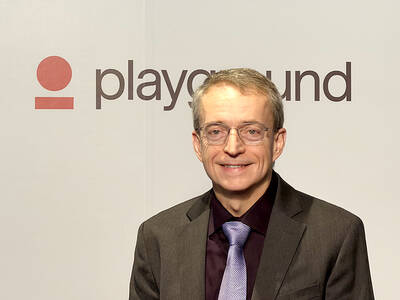Chang Hwa Commercial Bank (彰化銀行) yesterday said its board has approved plans to expand its customer base by opening a branch in China and extending its business to Cambodia, according to the lender’s filings to the Taiwan Stock Exchange.
State-run Chang Hwa said it plans to establish a branch in Huaqiao in Jiangsu Province’s Kunshan City. It opened its first Chinese branch in Kunshan in December last year.
The company plans to invest 100 million yuan (US$15.65 million) in the Huaqiao branch as working capital during the initial stage, according to the filing.
The plan to launch a second branch in Jiangsu is part of Chang Hwa Bank chairman Julius Chen’s (陳淮舟) blueprint to build an operating base in the eastern Chinese province, which has been targeted by Chinese authorities for development as an international financial hub.
Chang Hwa said it would apply with the Financial Supervisory Commission for permission to establish the branch. The plan is also still pending regulatory approval from Chinese authorities.
Chang Hwa Bank, 22.5 percent owned by Taishin Financial Holdings Co (台新金控), also plans to set up a branch in Phnom Penh to expand its overseas network, a separate exchange filing said.
The lender said it would apply for regulatory approval from authorities, but did not elaborate on the proposed Phnom Penh branch.
The Taiwanese bank has established overseas branches in China, Hong Kong, London, Los Angeles, New York, Singapore and Tokyo, according to information posted on its Web site.

JITTERS: Nexperia has a 20 percent market share for chips powering simpler features such as window controls, and changing supply chains could take years European carmakers are looking into ways to scratch components made with parts from China, spooked by deepening geopolitical spats playing out through chipmaker Nexperia BV and Beijing’s export controls on rare earths. To protect operations from trade ructions, several automakers are pushing major suppliers to find permanent alternatives to Chinese semiconductors, people familiar with the matter said. The industry is considering broader changes to its supply chain to adapt to shifting geopolitics, Europe’s main suppliers lobby CLEPA head Matthias Zink said. “We had some indications already — questions like: ‘How can you supply me without this dependency on China?’” Zink, who also

The number of Taiwanese working in the US rose to a record high of 137,000 last year, driven largely by Taiwan Semiconductor Manufacturing Co’s (TSMC, 台積電) rapid overseas expansion, according to government data released yesterday. A total of 666,000 Taiwanese nationals were employed abroad last year, an increase of 45,000 from 2023 and the highest level since the COVID-19 pandemic, data from the Directorate-General of Budget, Accounting and Statistics (DGBAS) showed. Overseas employment had steadily increased between 2009 and 2019, peaking at 739,000, before plunging to 319,000 in 2021 amid US-China trade tensions, global supply chain shifts, reshoring by Taiwanese companies and

Taiwan Semiconductor Manufacturing Co (TSMC, 台積電) received about NT$147 billion (US$4.71 billion) in subsidies from the US, Japanese, German and Chinese governments over the past two years for its global expansion. Financial data compiled by the world’s largest contract chipmaker showed the company secured NT$4.77 billion in subsidies from the governments in the third quarter, bringing the total for the first three quarters of the year to about NT$71.9 billion. Along with the NT$75.16 billion in financial aid TSMC received last year, the chipmaker obtained NT$147 billion in subsidies in almost two years, the data showed. The subsidies received by its subsidiaries —

OUTLOOK: Pat Gelsinger said he did not expect the heavy AI infrastructure investments by the major cloud service providers to cause an AI bubble to burst soon Building a resilient energy supply chain is crucial for Taiwan to develop artificial intelligence (AI) technology and grow its economy, former Intel Corp chief executive officer Pat Gelsinger said yesterday. Gelsinger, now a general partner at the US venture capital firm Playground Global LLC, was asked at a news conference in Taipei about his views on Taiwan’s hardware development and growing concern over an AI bubble. “Today, the greatest issue in Taiwan isn’t even in the software or in architecture. It is energy,” Gelsinger said. “You are not in the position to have a resilient energy supply chain, and that,